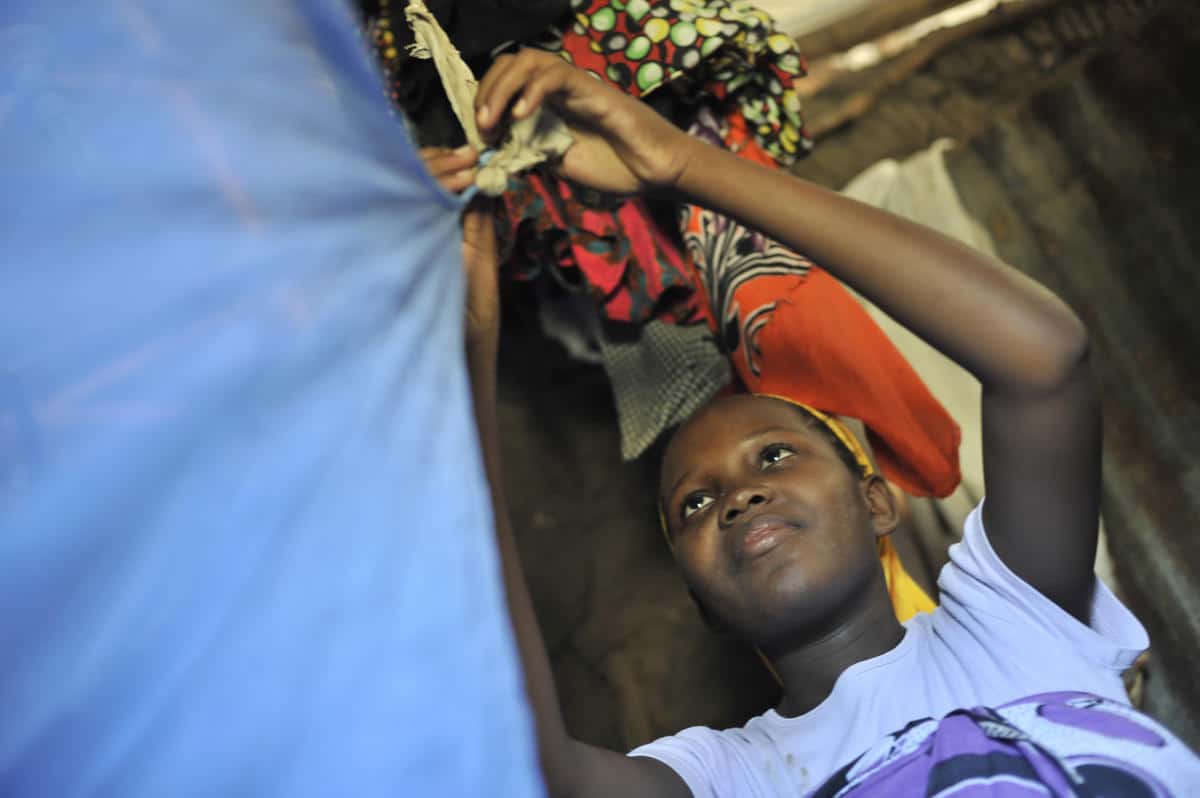Residents of Cameroon, Côte d’Ivoire and Sierra Leone who regularly use insecticide-treated bed nets to prevent malaria are more likely to take better care of their nets and extend their lifespan by rolling or folding them up every morning to keep them protected from damage.
Researchers from the Johns Hopkins Center for Communication Programs found, in a study published Feb. 17 in Malaria Journal, that people are more likely to properly care for their nets if they believe in the efficacy of nets to protect them from malaria and that they can do their part to extend the life of the nets. Damaged nets can be less effective at preventing malaria.
The findings suggest that explicit messages around proper storage – notably, the critical importance of folding or rolling up nets to keep them from being damaged during the daytime hours – could increase the number of people who take proper care of their nets.
“It’s what you hear that helps you begin to change your behavior,” says CCP’s Stella Babalola, PhD, the study’s senior author. “And hearing positive messages about how you can easily care for your nets and how that will increase protection from malaria can make people more likely to do so.”
Researchers surveyed 11,775 households with at least one bed net in Cameroon, Côte d’Ivoire and Sierra Leone between 2018 and 2019. Gender, geographical and age differences were reported among the countries, meaning context is key when designing behavior change messages and activities.
The study found that four other factors in addition to perceived efficacy of bed nets predicted correct net care behavior in all three countries: A positive attitude toward net care, perceived susceptibility to malaria, a perception that an individual believed they could use a net effectively and the perception that net care is a community norm.
Among respondents, 50.2 percent of those in Cameroon, 52 percent of those in Côte d’Ivoire, and 75.6 percent in Sierra Leone reported folding or tying up their net when it was not in use.
For most households in sub-Saharan Africa, insecticide-treated nets are highly effective tools for preventing malaria. While routine distribution of nets through channels like prenatal care visits are becoming more common, most families in the region receive nets through mass distributions that take place about every three years. This timing is based on how long the average net stays physically intact and how long the insecticide usually lasts.
Recent studies in several countries indicate that the physical integrity of nets tends to be compromised (e.g., holes, tearing) before degradation of insecticidal activity. This is a concern for malaria prevention because when nets have holes, protection from mosquitoes is compromised and damaged nets are more likely to be discarded, repurposed or no longer used.
“A balance of complementary behavior change messages that promote consistent use of nets and reinforce tying and folding nets up when they are not in use during the day may be beneficial to durability of [nets],” the authors write. “The positive associations between being female and the [properly caring for nets] in Côte d’Ivoire and Sierra Leone suggests that women may take on this role, or there is a need for special efforts to reach men with relevant messages in these countries.”
Another finding: Residents seemed more likely to tie or fold their net if others in their community were doing so. This indicates the influence of positive community norms around correct net care and the importance of promoting new norms around net care where they aren’t strong.
“This finding underscores the importance of social mobilization efforts for behavior change that rely on community events and target community groups and leaders,” says CCP’s Kuor Kumoji, DrPH, MPH, MS, the study’s lead author.
“Ideational factors associated with net care behavior: A multi-country analysis” was written by E. Kuor Kumoji, Grace N. Awantang, Michael Toso, Diarra Kamara, Thérèse Bleu, Wani Lahai, Musa Sillah-Kanu, Abdul Dosso, Dorothy Achu and Stella Babalola.





